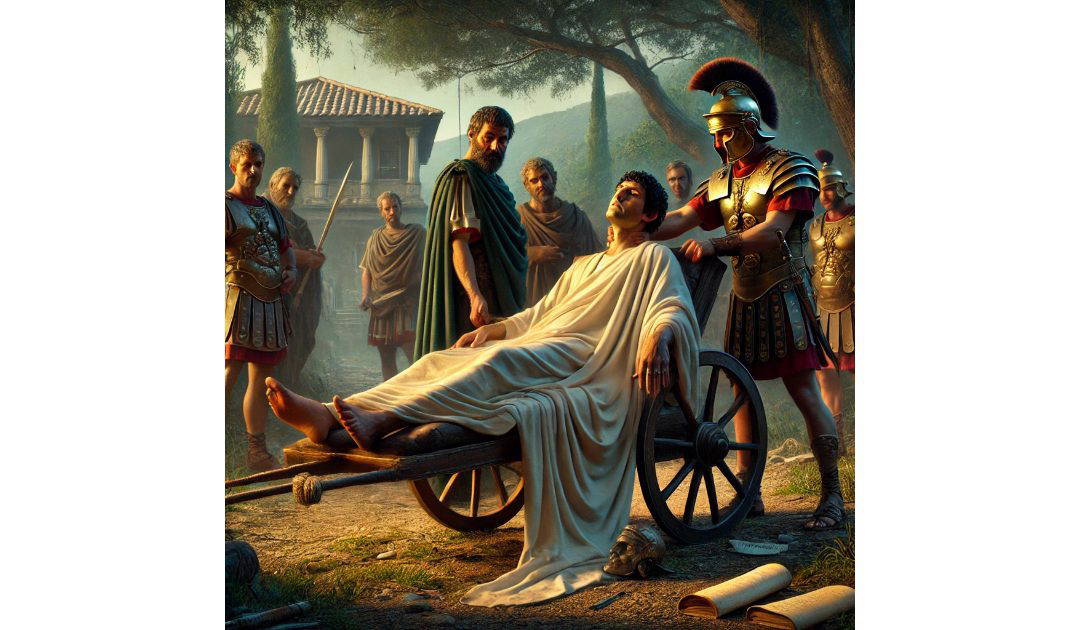The assassination of Marcus Tullius Cicero, one of Rome’s greatest orators, statesmen, and philosophers, occurred on 7th December 43 BCE, during the turbulent period of the Roman Republic’s fall. I mentioned Cicero in my post about Petrarch whose study of Cicero’s writings is credited with bringing about the Renaissance.
In 43 BCE, Rome was governed by the Second Triumvirate, an alliance of Octavian (later Augustus), Mark Antony, and Lepidus. They consolidated had power after Julius Caesar’s assassination in 44 BCE and sought to eliminate their enemies through proscriptions, a system of legalized political executions.
Cicero, a staunch supporter of the Republic and critic of Mark Antony, had made himself a target, especially through his scathing Philippics—a series of speeches condemning Antony as a threat to Roman liberty.
Antony ensured Cicero’s name was added to the proscription lists, probably with some resistance from Octavian, who admired Cicero. However, Octavian ultimately prioritized the Triumvirate’s political unity.
Cicero attempted to flee Rome, hoping to escape Antony’s agents. He planned to sail to Greece but was hindered by indecision and the poor state of his health. As Antony’s soldiers pursued him, Cicero was caught near his villa in Formiae (modern-day Formia) while being carried in a litter, as he was too weak to walk.
The assassination was carried out by soldiers led by a centurion named Herennius and a tribune named Popilius Laenas, the latter of whom Cicero had once successfully defended in court. Cicero reportedly showed great composure and acceptance of his fate. Accounts from ancient historians, particularly Plutarch, state that he leaned his head out of the litter, offering his neck to the executioners. He was killed on the spot, and his head and hands were severed as trophies.
Mark Antony ordered Cicero’s head and hands to be displayed on the Rostra, the speaker’s platform in the Roman Forum, as a grim warning to his enemies. This was a shocking and symbolic act, as the Rostra was where Cicero had delivered many of his powerful speeches.
According to legend, Antony’s wife, Fulvia, mocked Cicero further by stabbing his tongue with a pin, enraged by his criticisms of her husband.
Cicero’s death marked the silencing of one of the Republic’s most vocal defenders. Though his assassination symbolized the erosion of free speech and republican ideals in Rome, his works on rhetoric, philosophy, and politics have ensured his enduring legacy. Many historians view his death as a turning point in the Republic’s decline and the rise of autocratic rule under Octavian, later Augustus.

